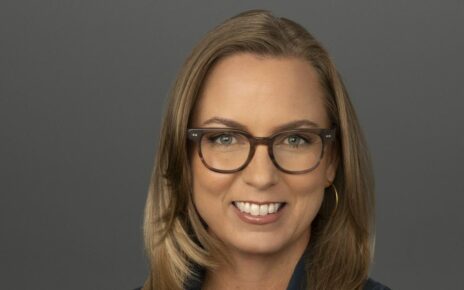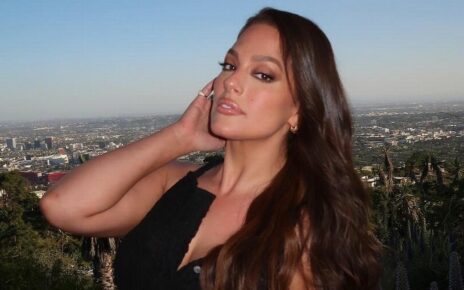Save articles for later
Add articles to your saved list and come back to them any time.
In a second-storey room of a Brunswick building I must have walked past dozens of times without noticing, Richard Mills is creating music.
Books are stacked neatly around the place, a piano stands off to one side, a desk is strewn with papers, and curled up on a chair is the accomplished composer and conductor’s dog, Buddy, who is his constant companion through the process of writing an opera from scratch.
Richard Mills, composer and outgoing artistic director of Victorian Opera in his studio.Credit: Wayne Taylor
Walking Buddy, who is one of the loveliest dogs you’ll ever meet, and getting a coffee are the two main breaks from writing Mills takes. The rest of the time he is immersed in the musical world he is creating.
“Writing music is really hard work. It takes time and concentration, and it takes isolation,” he says. “You can’t be talking to people – you’ve got to sit and do it quietly away from outside influences.”
When we meet, Mills is in the process of composing Galileo, a new work that will also mark his final production as artistic director of Victorian Opera after 11 years in the role. He will, however, be staying close to music. It’s impossible, he agrees, to ever retire from a vocation.
Though he is wrapping up his tenure, his passion for the art form is just as fiery as ever. He’s steadfast about the importance of opera and, while proud of what Victorian Opera has been contributing, feels that is a significant distance between where we are and where we should be in the art form as a state.
Mills with his dog, Buddy. Credit: Wayne Taylor
“Opera’s part of that continuum of the imagination – and a society without imagination has no future,” he says. “It happens to contain some of the greatest thoughts penned by human beings … It opens a window on the marvellous to a community … it creates opportunities to see the world in a different way.”
Every Victorian Opera program balances past and present, with an emphasis on spotlighting local talent both on the stage and behind the pen. “We were doing everything … this state government’s wanted to do long before they even published an arts policy, because it’s the right thing to do. I mean, we should be working with First Nations, we should be responsible to our community, we should be doing education. We should be doing accessible, meaningful work for families. We’re doing all of that – we always have. ”
That said, he feels there is more that could be done. “Every city that aspires to be an important centre has an opera company – and Melbourne should have a properly articulated state company at about $10 or $12 million a year. That would serve the city well, and the whole community,” says Mills.
At present, while Victoria has several local opera companies, there isn’t a dedicated state opera with that level of funding. Instead the role is filled in part by Victorian Opera, which was founded in 2005 and currently receives about $4.8 million in local and federal funding, and in part by Opera Australia, which formed when the Victoria State Opera merged with the Australian Opera in 1996 but is not Victoria-focused.
‘Opera’s part of that continuum of the imagination – and a society without imagination has no future.’
Mills also has his eye on the bigger picture beyond Victorian Opera. His views are firm and clear: pathways for young musicians and composers have become more tortuous and opaque, venues for performance are inadequate, government funding for performing arts is inadequate and spaces for emerging artists to experiment and create have all but disappeared.
“I feel incredibly fortunate when I was starting out as a young composer,” he says. “I’m not a great composer, I’m a good craftsman … I was lucky to be given opportunities at a time when it was much easier,” he says.
“The orchestras in those days were not run as businesses. They were broadcasting orchestras. So they had a lot of time to play Australian music.”
He has spoken before about how badly Melbourne needs its own opera house, and when asked about this – and where it should go – he doesn’t hesitate. “Fishermans Bend. It’s going to be a major hub.” He explains how a few years back he started work on a design made of shipping containers, then worked with Alan Pert from the University of Melbourne’s design school to work on a mock-up for another idea. “A 1200 seater.”
Mills conducts the Tasmanian Symphony Orchestra for Victorian Opera’s 2018 concert performance of Bellini’s The Capulets and the Montagues.Credit: Charlie Kinross
At present, Victorian Opera performs at the Palais and the Arts Centre. “The trouble with the Arts Centre is it would cost $250,000 a fortnight and it’s just too big. Opera needs to be on a human scale. In a resonant space, the voice sounds beautiful,” he says. “The Arts Centre, of course, is full of carpet [and] carpet’s a natural enemy of voice.”
The venue issue extends beyond companies like Victorian Opera needing places to perform finished work, he emphasises.
“There’s no sandpit in Melbourne for the younger generation, the emerging generation, to make stuff and try things,” he says.
“Barrie Kosky, when he first started out, made shows and put them on in garages, in service stations, but … we’ve destroyed all those old industrial spaces that the young practitioners could rent. It’s why the whole Fishermans Bend thing is incredibly important, because this city needs a sandpit – it needs a place for emerging talent to manifest itself without punitive cost structures.”
Mills is grateful for the time and space he had in his musical education to hone his craft, and this week his newest work, Galileo, has its concert premiere at the Palais.
He was drawn to the story of the Italian polymath because “it seems to me that it is a story for our time”.
Galileo was a pioneer in the field of astronomy whose work found him tried by the Spanish Inquisition and falling out of favour with the pope. His final years were spent under house arrest.
Even so, Mills was repeatedly asked why Galileo – why not Giordano Bruno? “It’s much more dramatic because Bruno was burned as a heretic,” he says. But for Mills, the story that can be woven from Galileo’s life is “much more nuanced and much more dimensional”. He was drawn in by the complexity.
“It’s a story about the search for truth, and the meaning of truth. It’s the relation of truth and politics. It’s also a story about a spiritual quest. It’s a story about the possibility of faith. It’s a story about all of this taking place in a constantly shifting environment that was, you know, negotiating the plague. Think about it. What’s changed?”
Galileo, a new opera in concert, will be performed by Victorian Opera on December 20 at the Palais Theatre.
The Booklist is a weekly newsletter for book lovers from books editor Jason Steger. Get it every Friday.
Most Viewed in Culture
From our partners
Source: Read Full Article





